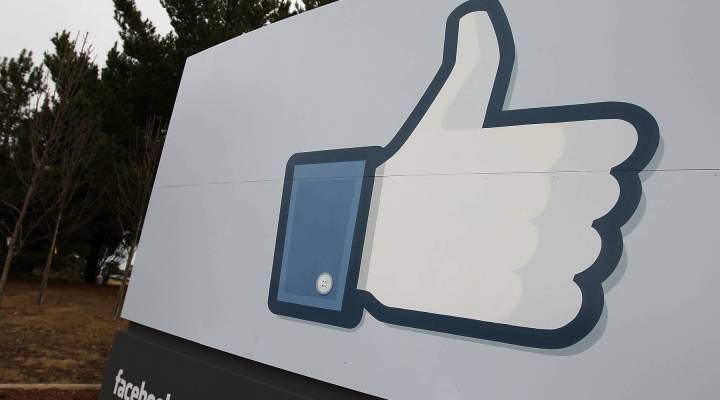
An open (Face)book
Share Now on:
An open (Face)book

Tess Vigeland: You’ve heard the news all week. Facebook is selling shares to the public. We don’t normally cover corporate news in this space. But given that 845 million people around the globe are on Facebook and spend gobs of time on it — and time is money, remember — we thought we’d explore the questions consumers are asking about Facebook this week.
Marketplace’s Stacey Vanek Smith has been reporting on this since the news broke. Hi Stacey!
Stacey Vanek Smith: Hi Tess.
Vigeland: So we have been hearing about this all week long from the business side of things. But tell me, my friend in real life and Facebook, how is this company going public going to affect little ol’ me?
Vanek Smith: Basically, they are going to be under enormous earnings pressure now. So every single quarter, every year, they’re going to have to make more and more money, which means they are going to have to get more and more out of you. So that’s how it’s going to affect you.
Vigeland: All right, well, how is that gonna happen?
Vanek Smith: Right, because Facebook’s free.
Vigeland: Exactly!
Vanek Smith: You Tess are there product.
Vigeland: I am no product!
Vanek Smith: They sell information about you. So you know, they’re making $3.5 billion a year selling information about you. They’re just gonna have to make more, which means they’re going to have to need more and better information on you.
Vigeland: So that means, presumably, more ads on the side of the page?
Vanek Smith: It’ll mean more ads on the side of the page, but also more relevant ads on the side of the page. One of the big problems with Facebook ads now is that people aren’t clicking on them. That’s something that Facebook needs to solve. So for instance, I Facebook stalked you Tess.
Vigeland gasps
Vanek Smith: So what I could tell from your Facebook page was you have a couple of beautiful dogs.
Vigeland: I do.
Vanek Smith: You went to Northwestern, you like McSweeney’s. These are all things I could gather from your Facebook page and things I could throw an ad up on your Facebook page, presumably to sell you something. But Facebook is gonna have to go deeper, they’re gonna have to synthesize that information more. And part of what will help them do that is timeline. I see you have jumped on the timeline train.
Vigeland: I did. I decided to do it before they force my hand.
Vanek Smith: Well, you know, it puts all of your information on a timeline. So, for instance, I was looking at your “likes,” and they’re all organized by year, which is kinda creepy, but interesting. So now marketers can actually track you. So for instance, they can figure out when your wedding anniversary is and sell you something for your wedding anniversary. So, they’re gonna reach into the soul of Tess Vigeland and try to figure out what makes you tick and what you want and sell you ads based on that stuff.
Vigeland: So it seems to me — and this is always the argument that comes up around privacy — is that look, we are getting this service, whatever you call it, that is Facebook for free and isn’t it up to us to make sure we’re not sharing things that we don’t want to share?
Vanek Smith: Well, yes. Definitely part of it is up to us. And part of it is also up to Facebook. I mean, they have a lot of information on us that maybe we’re not even necessarily aware that they have. So I spoke with James Fowler, he’s a social media expert at the University of San Diego. And he says Facebook needs to be really careful with the information that it has on us, because if we start to feel creeped out, that’s a big problem for them. First of all, we’ll be less likely to share our information with them, and we’ll also be less likely to use Facebook.
James Fowler: The data that they have access to is probably the best data in the world for targeting, for finding that one person in the world who is most likely to buy your product. But the more they do that, in a way, is inconsistent with what people want their Facebook experience to be like, the less people are going to use Facebook.
Vanek Smith: So he says Facebook needs to watch the creepy factor a lot, and as long as they do that, we will be relaxed into giving up evermore information to Facebook.
Vigeland: Wow. Marketplace’s Stacey Vanek Smith, thanks.
Vanek Smith: Thanks Tess.
There’s a lot happening in the world. Through it all, Marketplace is here for you.
You rely on Marketplace to break down the world’s events and tell you how it affects you in a fact-based, approachable way. We rely on your financial support to keep making that possible.
Your donation today powers the independent journalism that you rely on. For just $5/month, you can help sustain Marketplace so we can keep reporting on the things that matter to you.


















